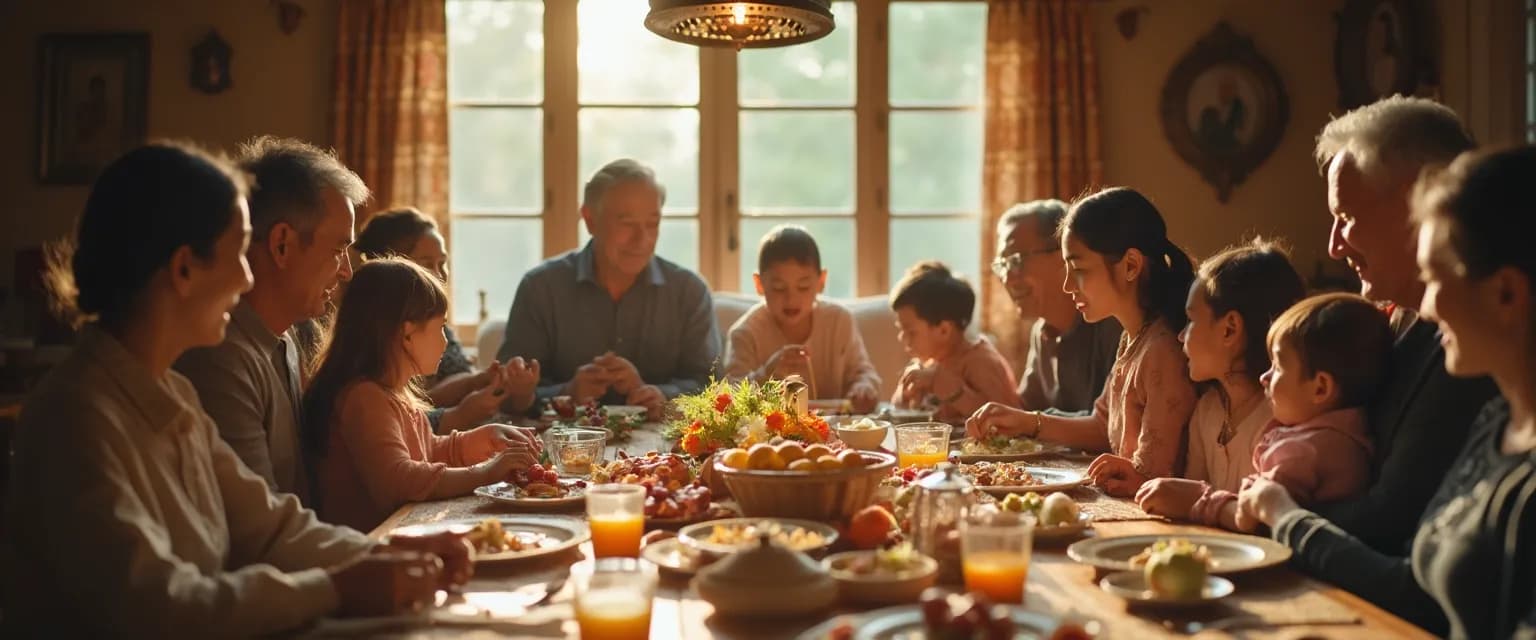Building Confidence in Family Traditions: Honor Heritage & Create New Customs
Finding the right balance between honoring your heritage while establishing new family rituals requires genuine confidence in family traditions. Many of us feel torn between preserving our ancestral customs and creating something uniquely ours that reflects our current values and lifestyle. This tension is completely natural—family traditions carry emotional weight precisely because they connect us to our roots while helping us build our future. Developing confidence in family traditions allows you to navigate this balance with grace and intention, rather than simply going through motions that may no longer serve your family's evolving identity.
Research shows that meaningful family traditions strengthen bonds and create a sense of belonging. A study from the Journal of Family Psychology found that families who maintain consistent emotional rituals report higher levels of satisfaction and connectedness. But confidence in family traditions isn't about rigidly preserving every custom exactly as it was—it's about understanding the essence of what makes traditions special and finding ways to honor that spirit while allowing room for growth.
When you approach family traditions with both reverence for the past and vision for the future, you create a living heritage that evolves meaningfully with each generation. Let's explore how to build this confidence in family traditions that respects where you've come from while embracing where you're going.
Building Confidence in Family Traditions While Honoring Your Roots
The first step in developing confidence in family traditions is identifying which heritage customs carry the most significance for your family. Not all traditions hold equal weight, and that's perfectly okay. Try this simple exercise: list your family's cultural traditions and rate them on a personal meaning scale of 1-10. This clarity helps you focus your energy on preserving what truly matters.
Adapting ancestral customs for modern life doesn't mean abandoning their essence. For example, if your heritage includes elaborate multi-day celebrations that aren't practical now, consider distilling them to their core elements. The key to confidence in family traditions is understanding that adaptation isn't betrayal—it's preservation in a new form.
Psychologically, establishing new family rituals activates our need for both security and autonomy. When you create traditions that reflect your authentic family values, you build a stronger sense of identity. This confidence in family traditions emerges when you see them as living practices rather than museum pieces.
Consider creating a simple tradition journal where you document both heritage customs and new rituals. Include photos, recipes, stories, and the meaning behind each tradition. This tangible record builds confidence in family traditions by honoring their evolution rather than seeing changes as losses.
Communicating Changes with Confidence in Family Traditions
Perhaps the most challenging aspect of evolving family traditions is discussing changes with older relatives who may have strong emotional attachments to how things have "always been done." Approaching these conversations with confidence in family traditions means leading with respect and appreciation.
Try opening with: "I've always loved how our family values togetherness through our holiday traditions. I'd love to continue that spirit while adding something that reflects our current family too." This frames new traditions as additions rather than replacements, which helps manage emotional responses to change.
When you encounter resistance, remember that it often comes from a place of love and fear of losing connection. Confidence in family traditions means acknowledging these feelings while gently moving forward. Consider creating specific roles for older family members in new traditions to help them feel valued and included.
Creating multigenerational input opportunities builds stronger confidence in family traditions. Try hosting a family tradition brainstorming session where everyone from grandparents to children can suggest elements they'd like to include. This collaborative approach honors everyone's need for belonging.
Strengthening Your Confidence in Family Traditions for the Future
As your blend of heritage and new traditions takes shape, regularly evaluate what's working for your family. After each significant celebration, take a moment to reflect: Did this tradition bring us closer? Did it feel meaningful or merely obligatory? This ongoing assessment builds confidence in family traditions by ensuring they remain vibrant and purposeful.
Remember that children benefit tremendously from seeing adults confidently navigate cultural evolution. By modeling thoughtful confidence in family traditions, you're teaching the next generation how to honor their roots while creating their own meaningful practices.
The most beautiful family legacies aren't frozen in time—they're living expressions that evolve while maintaining their core essence. With growing confidence in family traditions, you create not just memories but a resilient cultural identity that can flex and grow with each passing year.




